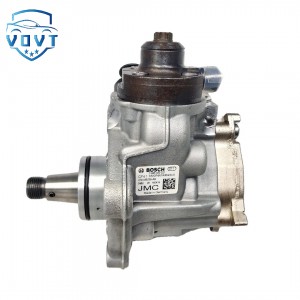Diesel Fuel Injection Pump 0 445 020 023 Auto Engine Part 0445020023
products description
| Reference Code | 0 445 020 023 |
| MOQ | 1 PCS |
| Certification | ISO9001 |
| Place of Origin | China |
| Packaging | Neutral packing |
| Quality Control | 100% tested before shipment |
| Lead time | 7~15 working days |
| Payment | T/T, Western Union, Money Gram, Paypal, Alipay, Wechat |
How to check the performance of the diesel fuel pump during car maintenance?
When maintaining a car, the performance of the diesel pump can be checked from many aspects, such as appearance, connection, pressure, and operating conditions. The following are specific inspection methods:
Appearance and connection inspection
Check the appearance: Check whether the diesel pump housing is damaged, cracked, or leaking oil. If there is oil leakage, it may be that the oil pump seal is damaged, which will affect the normal operation of the oil pump and the pressure of the fuel system.
Check the connection parts: Carefully check the connection parts between the diesel pump and the engine, the oil inlet pipe, the oil outlet pipe, etc., and ensure that the bolts, nuts and other connectors are not loose. Loose connectors may cause fuel leakage or abnormal vibration when the oil pump is working, affecting performance. At the same time, check whether the oil pipe has aging, damage, bending and other problems. If there is a problem with the oil pipe, it may cause poor fuel supply.
Pressure test
Static pressure test: Use a fuel pressure gauge to connect to a position close to the diesel pump in the fuel system. When the engine is not started, turn on the ignition switch to energize the oil pump and observe the reading of the fuel pressure gauge. The static pressure standards of diesel fuel pumps for different models are different, generally around 300-500kPa, and need to be compared with the standard values in the vehicle maintenance manual. If the pressure is too low, it may be caused by internal wear of the fuel pump, failure of the pressure relief valve, or clogging of the fuel filter; if the pressure is too high, it may be caused by a failure of the pressure regulator.
Dynamic pressure test: Start the engine and let it run under different working conditions, such as idle, medium speed, high speed, etc., and observe the changes in the readings of the fuel pressure gauge. Under different working conditions, the fuel pressure should be able to be adjusted accordingly according to the needs of the engine. Generally speaking, the fuel pressure is relatively low at idle speed, and the fuel pressure should gradually increase with the increase of engine speed and load. If the pressure is unstable or does not meet the standard range during the dynamic test, it means that there may be a problem with the diesel fuel pump.
Flow check
Simple flow test: When the oil pump is working, the oil outlet pipe of the oil pump can be placed in a container of known capacity, and the amount of fuel output by the oil pump can be measured within a certain period of time (such as 1 minute). Then compare it with the standard flow specified in the vehicle manual. If the flow is significantly lower than the standard value, it may be that the internal parts of the oil pump are worn, the oil is not flowing smoothly, or the oil pump drive mechanism is faulty.
Professional equipment test: Use professional fuel flow test equipment, which can more accurately measure the fuel flow of the diesel pump at different pressures and speeds. Connect the equipment to the fuel system and test it according to the operating instructions of the equipment to obtain accurate flow data for a more comprehensive evaluation of the performance of the oil pump.
Operation status check
Listen to the sound: After starting the engine, listen carefully to the working sound of the diesel pump around the vehicle. Under normal circumstances, the operation sound of the diesel pump is smooth and uniform, without obvious abnormal noise or noise. If you hear a harsh whistle, knocking or other abnormal sound, it may indicate that the gears, plungers and other parts inside the oil pump are seriously worn or faulty.
Check the oil temperature: After the engine has been running for a period of time, touch the diesel pump housing with your hand to feel its temperature. Under normal circumstances, the oil pump will have a certain amount of heat when working, but the temperature should not be too high. If the oil pump housing is overheated, there may be problems such as excessive friction, poor lubrication or excessive workload inside the oil pump.
Electronic control system inspection
Check fault codes: For vehicles equipped with electronically controlled diesel fuel pumps, use a car fault diagnostic instrument to connect to the vehicle's OBD interface to read fault codes related to the diesel fuel pump. If a fault code exists, determine the fault location and cause of the fuel pump based on the prompt information of the fault code, such as sensor failure, actuator failure, etc.
Check sensor signals: Use tools such as a multimeter or oscilloscope to check whether the signals of sensors on the diesel fuel pump (such as fuel pressure sensor, speed sensor, etc.) are normal. Abnormal sensor signals may cause inaccurate control of the fuel pump and affect its performance. When the engine is running, measure the output voltage or signal waveform of the sensor and compare it with the standard value to determine whether the sensor is working properly.























